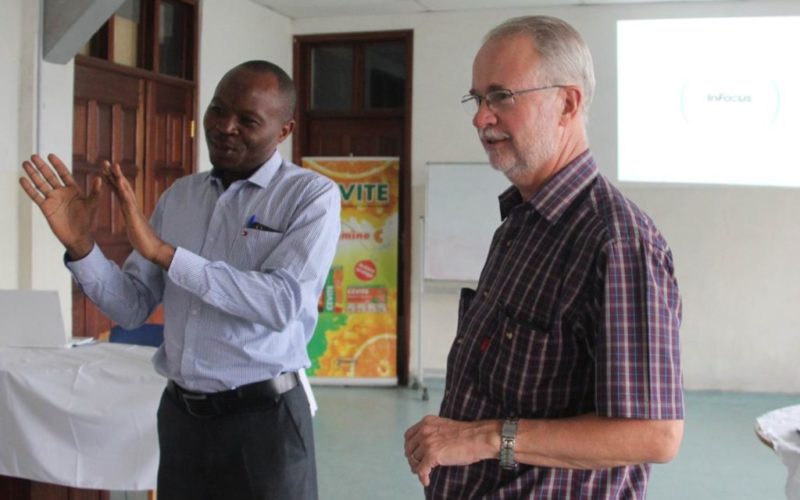SURGICALife
SURGICALife
This project seeks to promote & provide advocacy for the provision of safe surgery.
Research shows that 90% of the world’s unmet surgical need exists in Sub-Saharan Africa. Much of that is in the Democratic Republic of Congo (DRC) where 80% of the population live in rural areas.
Hence there is an urgent need to train doctors to work in peripheral and rural centres particularly in essential and emergency surgery.
A key part in this process was the establishment of Heal Africa Hospital as an approved surgical training centre for candidates of Membership of COSECSA (College of Surgeons in East, Central and Southern Africa).
Neil Wetzig is an Australian General Surgeon who is directly assisting indigenous staff in the establishment of a surgical training scheme in DR Congo, based at HEAL Africa Hospital. Here he works to deal with the large unmet surgical need in that country, one of the most resource and workforce poor areas of the world.
Neil is an Emeritus Senior Breast and Endocrine Surgeon at Princess Alexandra Hospital, Brisbane. Neil is also the African Representative on the Global Health Committee of the Royal Australasian College of Surgeons, an RACS Examiner in General Surgery, and Board Member of the G4 Alliance (advocating for greater access to surgical care for the world’s poor and marginalised).
Aim – COSECSA propose to train ‘task sharers’ a new breed of doctors with 2 years of training in essential and emergency surgery.
Beneficiaries – In the past 2 years, nearly 40 patients have been referred to the HEAL Africa Hospital in Goma, DR Congo, after inadequate surgery performed by poorly trained staff in rural areas. Many of these have been young women who have required an urgent Caesarean section and although a healthy baby was delivered the surgery resulted in injuries to the bowel or urinary tract.
Only the training of staff to perform safe, basic surgery when needed can provide sustainable change to surgical care.
Key Facts of Global Surgery
4. 16.9 million lives were lost in 2010 due to untreated surgical conditions.
5. In 2015 it was estimated that 143 million additional surgical procedures are needed each year to save lives and prevent disability.
6. 33 million individuals face catastrophic health expenditure paying for surgery and anaesthesia care each year and when non-medical costs such as food and accommodation are included this number rises to 81 million.
7. Investment in surgical and anaesthesia care is affordable and can save lives as well as promote economic growth.• Estimates suggest that a nation’s GDP can be increased by 2%.
Lack of attention and investment in surgical care in the next 15 years will incur a global cost of 12 trillion dollars in LMICs (low and middle income countries).


The Scope of Surgical Need
Every human being should be entitled to high quality, life-saving and safe surgical, obstetric, trauma and anaesthesia care performed in their communities. However, the poorest third of the world receives only 3.5% of all surgical procedures – there is a great inequity between the need and the available trained surgical workforce.
People in developing countries regularly travel many miles and walk for hours (or days) to access basic surgical treatment.
When finally reaching medical care, safe and effective surgery is often not available.
It is believed significant improvements in surgical care and anaesthesia, which save lives and prevent life-long disability or life-threatening complications, can be sustainably and affordably integrated within existing health systems.
Timely access to surgical care saves lives and prevents disability in many areas of life by treating:
• pregnancy related complications
• congenital abnormalities and childhood disabilities
• injuries (some of which result from violence and disasters)
• infections
• complications of HIV and diabetes
To deal with these inequities of care it is important that surgery is included when strengthening health systems, that workforce issues are dealt with, that sustainable financing of health care systems (in particular surgery) occurs and that quality and safety of surgery and anaesthesia exists.
